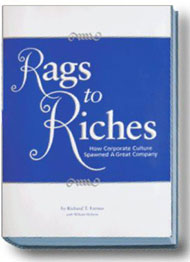According to AFP, Chinese Foreign Minister Wang Yi told reporters in Beijing that, “It has come to our attention that some political forces in the US are taking China-US relations hostage and pushing our two countries to the brink of a new Cold War.”
As a student of Chinese propaganda, it’s interesting that the Council on Foreign Relations and two leading universities have said the same thing within the past month, as seen here. Then The New York Times picked up the phrase and used it in a front page article.
The Chinese must be watching to see what arguments carry clout in the American mind. There is an echo chamber effect.
I’ve repeatedly argued, in The New Art of War and elsewhere, that we’re already in a type of new war with China, one that is highly complex and global in nature. There are points of cooperation. There are points of conflict. It is a far more subtle pattern of competition and cooperation than we saw from the Soviet Union at the heighth of that “Cold War.” We never had extensive business and economic ties with the Soviets. And the Soviets certainly did not have 1.4 billion people. This war with China already extends into many domains aside from the Covid-19 pandemic: technological, financial, geopolitical, etc.
What the threats of a “new Cold War” seem intended to achieve is preventing Americans from understanding the full range of China’s actions, even inside the United States. Inject enough fear into people and they cannot think as hard as they should. And the Chinese are using the phrase at a time when they are clearly crossing red lines in the relationship with the United States–quashing Hong Kong and dropping the word “peaceful” when they speak about “reunification” with Taiwan. (I put that in quotes because they have not been unified in centuries. To use the word “reunification” implies that they were one nation.) The threat of a “new Cold War” seems intended to blind us to what is happening before our eyes.




